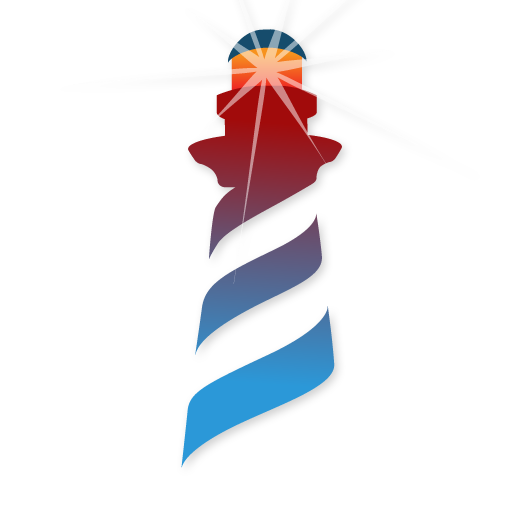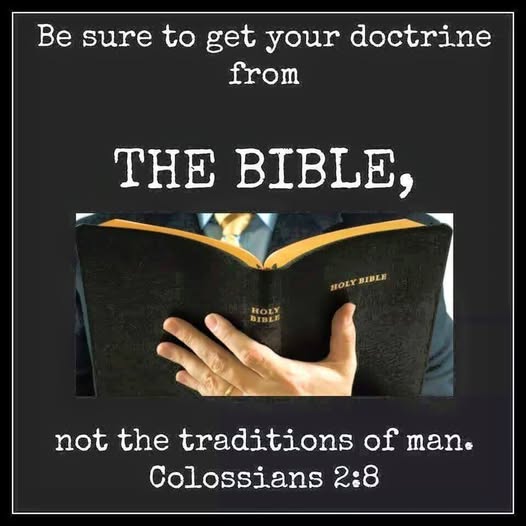
Collect enough Each day and double for the Sabbath
Bible Verse and Prayer for Today
Yea, though I walk through the valley of the shadow of death, I will fear no evil: for thou art with me; thy rod and thy staff they comfort me.
Psalm 23:4
Prayer
Lord , we Know that You have placed a Verse in the Bible for Every Day of the year . 265 verse with the Title . Do Not Fear . Lord fear reflecs Unbelief . and We do not want to Show unbelieve . Please Help us Understand that we need and have to Trust in you , You Protection , Your Healing and in Your Providing powers . Lord we do Not Have to Fear if we have You as our Fathers . Help Us to Have Total Faith and No Fear . we Pray this in Jesus name . Amen and Amen
Prayer Tips
If you have followed all the previous steps and there is still no peace, then do not look at your discontent, but look up to Jesus and see that He has conquered Satan on the cross and destroyed the debt with its demands against us.
Col. 2:13 ‘And you, who were dead in your trespasses and the uncircumcision of your flesh, He has made alive together with Him, having forgiven you all trespasses,
Col. 2:14 and having canceled out the handwriting of ordinances that was against us, which was hostile to us, nailing it to his cross,
Col. 2:15 having disarmed the principalities and powers and made a public spectacle of them, triumphing over them in it.’
Then look to the promises of God and believe them rather than your own fickle feelings. Our forgiveness is wrought by God and the feeling of peace is only incidental. Claim in faith the promises of God’s forgiveness for you, as given to us in ‘Col. 2:13-15’.
Col. 2:13 ‘And you, who were dead in your trespasses and the uncircumcision of your flesh, He has made alive together with Him, having forgiven you all trespasses,
Col. 2:14 and having canceled out the handwriting of ordinances that was against us, which was hostile to us, having taken it out of the way, nailing it to his cross,
Col. 2:15 having disarmed the principalities and powers, and made a public spectacle of them, triumphing over them in it.’
Bybel Vers en Gebed vir Vandag
Al gaan ek ook deur ‘n dal van doodskaduwee, ek sal geen onheil vrees nie, want U is met my; u stok en u staf hulle vertroos my.
Psalm 23:4
Gebed
Here, ons weet dat U vir elke dag van die jaar ‘n vers in die Bybel geplaas het. 265 vers met die Titel . Moenie Vrees nie. Here vrees weerspieël Ongeloof. en Ons wil nie ongeloof wys nie . Help ons asseblief om te verstaan dat ons nodig het en moet vertrou op U, U Beskerming, U Genesing en in U Voorsienende kragte. Here ons hoef nie te vrees as ons U as ons Vaders het nie . Help ons om totale geloof en geen vrees te hê nie. ons Bid dit in Jesus Naam. Amen en Amen
Gebed Wenke
As jy al die voorafgaande stappe gevolg het en daar is nogtans geen vrede nie, moet dan nie na jou onvrede kyk nie, maar kyk op na Jesus en sien dat Hy die Satan aan die kruis oorwin het en die skuldbewys met sy eise teen ons tot niet gemaak het.
Kol. 2:13 ‘En julle, wat dood was deur die misdade en die onbesnedenheid van julle vlees, het Hy saam met Hom lewend gemaak deurdat Hy julle al die misdade vergeef het,
Kol. 2:14 en die skuldbrief teen ons, wat met sy insettinge ons vyandig was, uitgedelg en weggeruim het deur dit aan die kruis vas te nael,
Kol. 2:15 nadat Hy die owerhede en magte uitgeklee en hulle in die openbaar ten toon gestel en daardeur oor hulle getriomfeer het’.
Kyk dan na die beloftes van God en glo dit eerder as jou eie wispelturige gevoelens. Ons vergifnis word deur God bewerk en die gevoel van vrede is slegs bykomend. Eien in die geloof die beloftes van God se vergifnis vir jou toe, soos in ‘Kol. 2 : 13-15’ vir ons gegee is.
Kol. 2:13 ‘En julle, wat dood was deur die misdade en die onbesnedenheid van julle vlees, het Hy saam met Hom lewend gemaak deurdat Hy julle al die misdade vergeef het,
Kol. 2:14 en die skuldbrief teen ons, wat met sy insettinge ons vyandig was, uitgedelg en weggeruim het deur dit aan die kruis vas te nael,
Kol. 2:15 nadat Hy die owerhede en magte uitgeklee en hulle in die openbaar tentoongestel en daardeur oor hulle getriomfeer het’.

Bible Teaching of the Day
Concentrate on the Cross – Part 2
The cross is arguably the most beloved symbol in all of Christianity. It adorns our churches and cathedrals, our jewelry, our books and music, and is used in numerous marketing logos. The empty cross symbolizes the work performed there by our Savior who went to death willingly to pay the penalty for our sins. Among Jesus’ last words before He died were “It is finished” (John 19:30). The Law was fulfilled, the Messianic prophecies pertaining to His first advent were accomplished, and redemption was complete. It is no wonder that the cross has come to symbolize all that is the greatest story ever told—the story of the sacrificial death of Christ.
This may come as a surprise to many, but the precise shape of the object on which Jesus was crucified cannot be proved explicitly from the Bible. The Greek word translated “cross” is stauros, meaning “a pole or a cross used as an instrument of capital punishment.” The Greek word stauroo, which is translated “crucify,” means “to be attached to a pole or cross.” Outside of the Bible, the same verb was also used in the context of putting up a fence with stakes. Though stauros can mean either “pole” or “stake,” many scholars argue that Jesus most likely died on a cross in which the upright beam projected above the shorter crosspiece. But a biblical, airtight case cannot be made for either a cross or a pole/stake. The Romans were not picky in regards to how they would crucify people. Historically, we know the Romans crucified people on crosses, poles, stakes, upside-down crosses, X-shaped crosses (such as the apostle Andrew is said to have been martyred on), walls, roofs, etc. Jesus could have been crucified on any of these objects, and it would not have affected the perfection or sufficiency of His sacrifice.
Certain cults, most notably the Jehovah’s Witnesses, are adamant that Jesus did not die on a cross and that the cross is in fact a pagan symbol. Their insistence on this point is curious, given the ambiguity of the Greek word. But they have worded their New World Translation to say that Jesus died on a “torture stake” rather than a cross. Given that the Jehovah’s Witnesses also deny the deity of Christ and His bodily resurrection, it stands to reason that they should object to other details of traditional Christianity.
Arguing against the Jehovah’s Witnesses’ teaching that Jesus died on a “torture stake” are some indirect clues in the New Testament. One of these is found in John 21. Jesus gives Peter a glimpse of the manner of his death: “‘When you are old you will stretch out your hands, and someone else will dress you and lead you where you do not want to go.’ Jesus said this to indicate the kind of death by which Peter would glorify God” (verses 18–19). The fact that Peter (who tradition says was crucified) would “stretch out” his hands indicates that Roman crucifixion usually involved outspread arms such as would be positioned on a crosspiece.
The other clue that Jesus was crucified on a cross is found in John 20. Thomas, in his famous moment of doubt, said, “Unless I see the nail marks in his hands and put my finger where the nails were, and put my hand into his side, I will not believe” (verse 25). Note Thomas’s mention of the nails (plural) that had scarred Jesus’ hands. If Jesus had been crucified on a stake or a pole, only one nail would have been used. The fact of two nails in the hands suggests a traditional cross.
Completely lost in arguments over the shape of the cross is its significance to us. Jesus said, “If anyone would come after me, he must deny himself and take up his cross and follow me. For whoever wants to save his life will lose it, but whoever loses his life for me will find it” (Matthew 16:24–25). The cross/stake/pole was an instrument of death. By telling us to take up our cross and follow Him, Jesus says that, in order to be His true followers, we must die to self. If we call ourselves “Christians,” then we must deny ourselves and give up our lives for His sake. This may take the extreme form of being martyred for our faith, but even in the most peaceful political settings, we must be willing to lose the self—crucifying self-righteousness, self-promotion, selfish ambitions—in order to be His followers. Those who are not willing to do so are “not worthy” of Him (Matthew 10:38).
So, did Jesus die on a cross? We believe He did. Could it have been a pole or stake instead? Possibly, if we ignore Thomas’s words in John 20:25. But even more important than the shape of the object on which Jesus was crucified is that Jesus shed His blood for our sins and that His death purchased for us eternal life.
Bybel Lering vir die Dag
Bedink die Kruis – Deel 2
Die kruis is waarskynlik die mees geliefde simbool in die hele Christendom. Dit versier ons kerke en katedrale, ons juweliersware, ons boeke en musiek, en word in talle bemarkingslogo’s gebruik. Die leë kruis simboliseer die werk wat daar verrig is deur ons Verlosser wat gewillig na die dood gegaan het om die straf vir ons sondes te betaal. Van Jesus se laaste woorde voor Hy gesterf het, was “Dit is volbring” (Johannes 19:30). Die Wet is vervul, die Messiaanse profesieë met betrekking tot Sy eerste koms is volbring, en verlossing was volkome. Dit is geen wonder dat die kruis alles simboliseer het wat die grootste verhaal is wat nog ooit vertel is nie – die verhaal van die offerdood van Christus.
Dit mag dalk vir baie ‘n verrassing wees, maar die presiese vorm van die voorwerp waarop Jesus gekruisig is, kan nie uitdruklik uit die Bybel bewys word nie. Die Griekse woord wat met “kruis” vertaal word, is stauros, wat beteken “‘n paal of ‘n kruis wat gebruik word as ‘n instrument van doodstraf.” Die Griekse woord stauroo, wat met “kruisig” vertaal word, beteken “om aan ’n paal of kruis vasgemaak te wees”. Buite die Bybel is dieselfde werkwoord ook gebruik in die konteks van ‘n heining met pale opsit. Alhoewel stauros óf “paal” óf “paal” kan beteken, voer baie geleerdes aan dat Jesus heel waarskynlik aan ‘n kruis gesterf het waarin die regop balk bo die korter dwarsstuk geprojekteer het. Maar ‘n Bybelse, lugdigte omhulsel kan nie gemaak word vir óf ‘n kruis óf ‘n paal/paal nie. Die Romeine was nie kieskeurig met betrekking tot hoe hulle mense sou kruisig nie. Histories weet ons dat die Romeine mense gekruisig het op kruise, pale, pale, onderstebo kruise, X-vormige kruise (soos die apostel Andreas word gesê dat hy gemartel is), mure, dakke, ens. Jesus kon op enige van hierdie voorwerpe gekruisig gewees het, en dit sou nie die volmaaktheid of genoegsaamheid van Sy offer beïnvloed het nie.
Sekere kultusse, veral die Jehovah se Getuies, is vasbeslote dat Jesus nie aan ‘n kruis gesterf het nie en dat die kruis in werklikheid ‘n heidense simbool is. Hulle aandrang op hierdie punt is eienaardig, gegewe die dubbelsinnigheid van die Griekse woord. Maar hulle het hul Nuwe Wêreld-vertaling verwoord om te sê dat Jesus aan ‘n “folterpaal” gesterf het eerder as ‘n kruis. Aangesien die Jehovah se Getuies ook die godheid van Christus en Sy liggaamlike opstanding ontken, is dit logies dat hulle beswaar moet maak teen ander besonderhede van tradisionele Christendom.
Om te argumenteer teen die Jehovah se Getuies se leerstelling dat Jesus aan ‘n “folterpaal” gesterf het, is ‘n paar indirekte leidrade in die Nuwe Testament. Een hiervan word gevind in Johannes 21. Jesus gee vir Petrus ’n blik op die wyse van sy dood: “‘As jy oud is, sal jy jou hande uitsteek, en iemand anders sal jou aantrek en jou lei waarheen jy nie wil gaan nie.’ Jesus het dit gesê om aan te dui deur watter soort dood Petrus God sou verheerlik” (verse 18–19). Die feit dat Petrus (wat volgens tradisie gekruisig is) sy hande sou “uitsteek” dui daarop dat Romeinse kruisiging gewoonlik uitgespreide arms behels het soos wat op ‘n dwarsstuk geplaas sou word.
Die ander leidraad dat Jesus aan ‘n kruis gekruisig is, word gevind in Johannes 20. Thomas het in sy bekende oomblik van twyfel gesê: “As ek nie die spykermerke in sy hande sien en my vinger steek waar die spykers was, en my hand in sy sy steek nie, sal ek nie glo nie” (vers 25). Let op Thomas se vermelding van die spykers (meervoud) wat Jesus se hande laat let het. As Jesus op ‘n paal of ‘n paal gekruisig is, sou net een spyker gebruik gewees het. Die feit van twee spykers in die hande dui op ‘n tradisionele kruis.
Heeltemal verlore in argumente oor die vorm van die kruis is die betekenis daarvan vir ons. Jesus het gesê: “As iemand agter My aan wil kom, moet hy homself verloën en sy kruis opneem en My volg, want elkeen wat sy lewe wil red, sal dit verloor; maar elkeen wat sy lewe vir My verloor, sal dit vind” (Matteus 16:24–25). Die kruis/paal/paal was ‘n instrument van die dood. Deur vir ons te sê om ons kruis op te neem en Hom te volg, sê Jesus dat, om Sy ware volgelinge te wees, ons aan onsself moet sterf. As ons onsself “Christene” noem, dan moet ons onsself verloën en ons lewens prysgee ter wille van Hom. Dit kan die uiterste vorm aanneem om vir ons geloof gemartel te word, maar selfs in die vreedsaamste politieke omgewings moet ons bereid wees om die self te verloor – kruisiging van eiegeregtigheid, selfbevordering, selfsugtige ambisies – om Sy volgelinge te wees. Diegene wat nie bereid is om dit te doen nie, is Hom “nie waardig” nie (Matteus 10:38).
So, het Jesus aan ‘n kruis gesterf? Ons glo Hy het. Kon dit eerder ‘n paal of paal gewees het? Moontlik, as ons Thomas se woorde in Johannes 20:25 ignoreer. Maar selfs belangriker as die vorm van die voorwerp waarop Jesus gekruisig is, is dat Jesus Sy bloed vir ons sondes gestort het en dat Sy dood vir ons die ewige lewe gekoop het.

Today’s Devotional
NO GREATER LOVE?
This morning I wanted to tell you about the crucifixion of our Lord and Savior, Jesus Christ. I wanted to tell you about His back being torn open with a whip, His hands and feet being pierced with nails, His head being torn open with thorns, and His side being pierced with a spear. I wanted to tell you about blood dripping, blood flowing, and blood sinking into the sand.
But instead I want to tell you about His love. When Jesus said in John 15:13; “Greater love has no one than this, that a man lay down his life for his friends,” He was not referring to any person’s love, but to His love, the greatest love ever known and ever revealed.
Because of His love, Jesus, while we were still helpless and in sin, died a gruesome death on Calvary. (See Romans 5:6) It was love that led Jesus, the Good Shepherd, to lay down His life for His sheep. (John 10:11)
It was not the nails that held Jesus to the cross. It was His love for mortals like you and me that kept Him there. It was not the tomb that held Him captive for three days, but it was His love for you and me.
It is because of His love and blood that we can receive salvation. (Ephesians 1:7) It is because of His love, because of His suffering and His death, that we can receive life and life in abundance. (John 10:10)
Let us not forget His love for us. Let us not forget the cross on which He died, but let us hold on to Him and allow His love to not only save us, but also to be revealed in us and through us.
“Greater love has no one than this, that a man lay down his life for his friends.”
Vandag se Bemoediging
GEEN GROTER LIEFDE NIE?
Vanoggend wou ek jou vertel van die kruisiging van ons Here en Verlosser, Jesus Christus. Ek wou vertel van Sy rug wat met ‘n sweep oopgekloof is, Sy hande en voete wat met spykers deurboor is, Sy kop wat deur dorings oopgeskeur is en Sy sy wat met ‘n spies deurboor is. Ek wou jou vertel van bloed wat drup, bloed wat vloei en bloed wat wegsink in die sand.
Maar in plaas daarvan wil ek jou vertel van Sy liefde. Toe Jesus in Johannes 15:13 gesê het; “Groter liefde het niemand as dit nie, dat iemand sy lewe vir sy vriende gee” het Hy het nie na enige persoon se liefde verwys nie, maar na Sy liefde, die grootste liefde ooit bekend en ooit geopenbaar.
As gevolg van Sy liefde het Jesus , toe ons nog hulpeloos en in sonde was, ‘n grusame dood op Golgota gesterf. (Sien Romeine 5:6) Dit was liefde wat daartoe gelei het dat Jesus, die goeie herder, Sy lewe vir Sy skape afgelê het. (Johannes 10:11)
Dit was nie die spykers wat Jesus aan die kruis vasgehou het nie. Dit was Sy liefde vir sterflinge soos ek en jy wat Hom daar gehou het. Dit was nie die graf wat Hom vir drie dae gevange gehou het nie, maar dit was Sy liefde vir jou en my.
Dit is as gevolg van Sy liefde en bloed, dat ons verlossing kan ontvang. (Efesiërs 1:7) Dit is as gevolg van sy liefde, weens Sy lyding en Sy dood, dat ons lewe en lewe in oorvloed kan ontvang. (Johannes 10:10)
Laat ons nie Sy liefde vir ons vergeet nie. Laat ons nie die kruis vergeet waarop Hy gesterf het nie, maar laat ons aan Hom vashou en toelaat dat Sy liefde ons nie net red nie, maar ook in ons en deur ons geopenbaar word.
“Groter liefde het niemand as dit nie, dat iemand sy lewe vir sy vriende gee.”

TruLight Ministries Daily Entertainment

TruLight TV & Kingdom Kidz TV– I Can Set an Example
In the final episode of the series, camp is almost over and new leaders are emerging by setting an example for others! Will the Ready Racoons finally win the coveted Wannastay Weasel? and later Mike and Jayden take on The Level Up Challenge, the awesome new game everyone’s playing. But what happens when the game becomes a little too important to them? Get ready for an hour full of thrilling fun!
Today on TruLight Radio XM

TruLight Radio XM 24/7
Program
GMT / UTC +2
00:15 Words to Live By Testimonies
01.15 Science Scripture and Salvation
02.15 Ground Works
04.00 Gospel Concert of the Day
05.00 The Daren Streblow Comedy Show
5:55 It is Today devotional
6:00 Gaither Homecoming Morning Show
7:15 Discover the Word
8.15 Destined for Victory
8:55 Science Scripture and Salvation
9:00 Holy Spirit Hour – Normally Sermons
10:15 Hope of the Heart
11:15 Unshackled
11.45 Words to Live By
12:15 Truth for Life
13:15 Living on the Edge with Chip Ingram
14:15 Focus on the Family
15:00 Kids Hour
16:00 In Touch with Dr. Charles Stanley
16:30 Groundwork
17:15 Live in the Light
18:15 Renewing your Mind
19:00 Gaither Homecoming Show
20:15 Growing Hope
21:15 Adventures in Odyssey Radio Drama
21:45 Bible Reading
22:15 Nightsounds
23.00 Good Old Country Gospel / Rhema Gospel Express

Something Cool and New on TruLight Daily Manna . a Live Radio Player – TruLight Radio XM Live on this APP.
To Listen via our website . Just click on this Link below and turn the Radio Player on , on the Bottom of the Page
www.TruLightRadioXM.co.za
TRULIGHT BIBLE QUIZ PART 15
GOSPEL ARTISTS AROUND THE WORLD INTRODUCE THEMSELVES TO TRULIGHT RADIO XM LISTENERS !!
MEET : HANNAH SCHAEFER
Hannah Schaefer, an American Christian artist, is known for her talent in writing, playing, and singing Christian pop music. In 2015, she introduced her extended play titled “All the Way,” followed by her debut album “Who I Am” in 2020.

Bible Prophecy in the News
IS IRAN WEEKS AWAY FROM A NUCLEAR BOMB? Or Did BRICS Members equipped them Already ?
Iran may very well be on the verge of completing their nuclear weapon program. But Iran is also in a precarious situation due to three things that have occurred in the last year and a half. Iran’s main proxy in the Middle East has been the Hizbullah. The entire Hizbullah leadership has either been killed or is in hiding with far less weaponry than they had before October 7th. The beeper attack completely decapitated the Hizbullah and changed the entire Middle East. Syria’s dictatorship fell apart and Lebanon has some hope for a better future for the first time in a long time.
Additionally, Iran knows that the destruction of Hamas will be completed in a matter of weeks or perhaps months. So, all they have left are Houtis in Yemen as their main proxies. But the most debilitating attack of the last year was when Israel destroyed the air defenses of Iran in that powerful counterattack. Iran knows that the lifetime of their nuclear program does not have much left. But Netanyahu decided to wait till after the US November election to move. He preferred to attack in a coordinated fashion with the USA with a friendly President. The attack will probably happen in the end of March or April.
Donald Trump wants to send clear signals to Vladimir Putin about Ukraine and to China about not invading Taiwan. He will do that with attacks on Yemen and Iran that are coordinated with Israel. It is money time. The Middle East will not be the same for at least 5-10 years, perhaps more.
Signs of the Times in the News
Magog / Iran Reveals Massive Underground Missile City – The IRGC unveiled a new underground missile base, claiming it houses thousands of precision-guided and ballistic missiles, including medium-range, long-range and solid-fuel types.

https://www.youtube.com/watch?v=tRFKPslJYOI
Huckabee is the First Gentile Ambassador to Israel in a Decade, What Does it Mean?

President-elect Donald Trump’s appointment of Mike Huckabee as United States ambassador to Israel represents a break with recent tradition.
With Israel’s help, 100 Gazan’s to resettle in Indonesia

A group of 100 Palestinian Arabs living in the Gaza Strip is slated to immigrate to Indonesia in the coming days, as part of a new program launched by Israel’s Defense Ministry to help facilitate mass migration from Gaza to third-party countries.
According to a report by the Israeli Channel 12 TV network on Wednesday, the prospective émigrés are working in conjunction with the Defense Ministry’s Coordinator of Government Activities in the Territories (COGAT), under the authority of COGAT chief Major-General Ghassan Alian.
The migrants will not be barred from returning to the Gaza Strip should they choose to leave Indonesia, but COGAT is working to help the emigrants permanently settle abroad, and has found work for them in Indonesia, primarily as construction workers.
Gog and Magog Update

News Headlines in the News
- RARE: Hundreds of Gazans Take to the Streets to Protest Hamas
- IDF Carrying Out ‘Most Powerful’ Operations in Judea and Samaria Since 2002
- Hamas to Pay ‘Increasingly Heavy Price’ Unless it Frees Hostages, Says Israel’s Defense Minister
- Israeli Police Stop Attack Near Jerusalem, Court Freezes PA Funds, Rockets Fired from Gaza
- Netanyahu Threatens to Seize Parts of Gaza – Israel’s Historic Moment: Reclaiming Our Land, Restoring the Truth
- Iran Planning to Outwit Trump, Not End its Nuclear Program.
TruLight Ministry News
TruLight Ministries orders from God since 2012 . Teach Them , Comfort Them and Warn Them! //////////// TruLight Ministries opdrag vanaf God sedert 2012. Leer hulle, troos hulle en waarsku hulle!
Learn more about TruLight Ministries ,
END TIME PRAYERS (INTRODUCTION VIDEO)
In 2012 The Holy Spirit inspired Pastor Dirk to Pen down 9 End Time Prescription Prayers . This Ministry are Currently one of the Flag Ship Ministries on the TruLight Ministries Platform . The eBooks from this Ministry received over 600 000 downloads world wide and These Prayers has made a Hugh contribution to the Kingdom of God .
At TruLight Ministries, we have developed a valuable online platform known as End Time Prayers, House of Prayer, exclusively for you. This resource website is designed to provide you with a comprehensive collection of prayers and spiritual guidance to navigate through the challenging times we are living in. 2. Discover the incredible resource website, End Time Prayers, House of Prayer, brought to you by TruLight Ministries. This platform has been meticulously crafted to offer you a wide range of prayers and spiritual support tailored specifically for the current era we find ourselves in.
Available in titles in both Afrikaans and English, such as Prescription Prayers for the End Times, Prayer Studies, The 2 Way Prayer, Prayer of Thanksgiving, Prayer for Healing, and Prayer for Deliverance. Whether you are looking to strengthen your faith, find comfort in times of need, or simply express gratitude, these titles provide a wealth of knowledge and inspiration to help you on your spiritual journey.
The TruLight eBook of the week –
NOT JUST A SPIRIT
https://www.thegospeltruth.net.za/not-just-a-spirit/

Not just a Spirit.
A Revelation from God – received by Pastor Dirk
Chapter selection
- Introduction to the Holy Spirit
- The Throne of God
- The Cherubim
- The Seven Spirits of God
- The Baptism of the Holy Spirit
- The Baptism of Jesus and His Disciples
- The Spirit of God and the 4 Living beings (Cherubim)
- The Ministry of the Spirit
- The Mark / Seal of God
Soon TruLight School of Theology will start with Its daily Bible Study – Pastor Counselling Certificate – we are Starting with 36 Studies with 10 Studies per Topic from 1st of April 2025 – Over the Next 2 Years we will Include One Daily Study per Topic on this Platform. The Daily Manna Bible Study will be Available in English and Afrikaans!

Study Notes :
We will Start with a 68 week Study on “Know Your Bible” Daily Bible Summaries of every Chapter in the Bible! From the Old Testament to the New Testament , from Genesis to Revelation 66 Books of the Bible. Starting Next week 1st of April 2025 .
This is our Study Principals:
SOAP
Scripture: Read a short passage out loud.
Observation: What do you notice about the verses?.
Application: How can you apply this to your life?.
Prayer: Pray about what you’ve learned.
REAP
Read: Read the passage carefully.
Engage: Ask questions about the passage.
Apply: Think about how the passage applies to your life.
Pray: Pray about what you’ve learned.

The Bible is full of wisdom, but it is often misquoted and misunderstood. The same goes for Jesus’ words. While the teachings of Jesus only lasted around three years prior to His death, in that short amount of time, a tremendous world of truth, myth, legend and superstition was built around Him. Even though Christians share a particular set of beliefs that they hold as essential to their faith, there are a wide range of interpretations and opinions when studying the Bible. Today, readers and carriers of the message often hear particular verses and passages in ways they were not intended to be heard.
While the Bible is often quoted, it is just as often misquoted. There are also a number of things that Christians will say or do that they think are biblical but are totally not rooted in Scripture. They may do these things based on false teachings, a limited understanding of God’s Word or simply because they believe that action holds little weight in God’s eyes. It’s important to know facts about the Bible and that we take God seriously, mainly if you are living by the Word and professing it to others. Here are 6 things Christians like to do that aren’t biblical.
Say things that aren’t in the Bible.
In Psalm 119:16, David promises God, “I shall delight in Your statutes; I shall not forget Your word.” In Deuteronomy 11:18-19, God encourages the Israelites, “You shall therefore impress these words of mine on your heart and soul, and you shall bind them as a sign on your hand, and they shall be as frontals on your forehead. You shall teach them to your sons, talking of them when you sit in your house and when you walk along the road and when you lie down and when you rise.”
As believers, we know we are to study the Bible, memorize it and obey it. But the Bible doesn’t always say what we think it says, and there are a number of phrases that sound like they come from the Bible, but they don’t. God left us the Bible as a written testimony of His Word. His truth is found in the Bible. Some sayings are simple rewordings of biblical truth, but others are dangerous heresy. Despite how clever or even edifying a quote may be, if it isn’t in the Bible, we have no guarantee that it is the Word of God.
Read horoscopes to determine future events.
The fascination with astrology and horoscopes undoubtedly reflects people’s desire for wisdom beyond their own and direction for the future. Astrology is the ancient belief that a person’s destiny can be found in the pattern of the stars and planets at the time of one’s birth. The “horoscope” is the chart that attempts to describe that destiny. The Bible mentions the astrologers of the royal court at Babylon and their inability to tell or interpret royal dreams (Daniel 2:10-11 and 4:7).
Isaiah the prophet spoke of astrologers with scorn: “Let your astrologers come forward, those stargazers who make predictions month by month, let them save you from what is coming upon you” (Isaiah 47:13). Astrology is offensive to God because it attributes to planets and stars the power that belongs to God alone and because it tries to find the Will of God by other means that God has appointed.
Tithing based on a sense of obligation.
Not very many people are comfortable talking about the ways they give monetarily to the church. Most would rather not talk about it at all. So many Christians look at tithing as a final issue when it’s really a matter of the heart. In the Old Testament, God instructed His people to tithe – give ten percent of their income to meet the needs of the religious, economic and political system of ancient Israel. In the New Testament, Jesus set a higher standard, though it was a less precise standard. The Bible says giving is to be done cheerfully, rather than as an obligation (2 Corinthians 9:6-7), and not for public recognition (Matthew 6:1-4). Too often, we treat our financial situation and other resources as though God needs them. Rather than give out of a place of gratitude and joy, we see ourselves as thrifty overseers, doling out scarce resources. We forget that every good thing comes down from our Father in heaven (James 1:17).
Blame karma.
Karma is a theological concept found in Buddhist and Hindu religions. It is the idea that how you live your life will determine the quality of life you will have after reincarnation. If you are unselfish, kind, and holy during your lifetime, you will be rewarded by being reincarnated into a pleasant life. However, if you live a life of selfishness and evil, you will be reincarnated into a less-than-pleasant lifestyle. In other words, you reap what you sew. Some Christians buy into the notion of karma, but this concept isn’t biblically based. Karma is based on the theological belief in reincarnation. The Bible rejects the idea of reincarnation; therefore, it does not support the idea of karma. The concept of reincarnation and karma is incompatible with what the Bible teaches about life, death and the sowing and reaping of eternal life.
Believing in superstition.
Superstition is based on the faith of an object having magical powers. Another word for superstition is “idolatry.” The Bible does not support the idea of things occurring by chance, but nothing is done outside of God’s sovereign control. Either He causes or allows everything in keeping with His divine plan (Acts 4:28; Ephesians 1:10). There are many types of superstitions in the world, ranging from benign – such as not walking under a ladder – to magic, divination, voodoo and sorcery. Idolatry is forbidden. These types of practices are dangerous because they open the minds of the practitioners to the influence of the devil. First Peter 5:8 warns us to “be self-controlled and alert. Your enemy, the devil, prowls around like around like a roaring lion looking for someone to devour.”
Drinking to get drunk.
Getting drunk is prohibited in the Bible. While it is a sin, for centuries, there has been significant debate around the topic of drinking in moderation and even more in recent years. With the shift toward postmodernism, practices that were once discouraged by the Christian community have been embraced and even promoted. Whether it be alcohol, drugs or some other addictive behavior, Jesus said, “You cannot serve two masters” (Matthew 6:24). When we get drunk, we are serving a master other than the Lord. Choosing to follow Jesus means choosing against our old sinful patterns and lifestyle. First Corinthians 6:10 lists drunkards among those who “will not inherit the kingdom of God.”
The Bible is the single most important book ever written. It is an eyewitness account of historical events of such magnitude that they have literally shaped the world in which we live. Without the Bible, the Western world and a good deal of the Eastern would be completely different today than if the events of the book had never occurred. The Bible is remarkable. It is unique. No other book has any such credentials. No other book even comes close. Our words and actions must align with our faith.
Die Bybel is vol wysheid, maar dit word dikwels verkeerd aangehaal en misverstaan. Dieselfde geld vir Jesus se woorde. Terwyl die leringe van Jesus net sowat drie jaar voor Sy dood geduur het, is daar in daardie kort tydjie ‘n geweldige wêreld van waarheid, mites, legende en bygeloof rondom Hom gebou. Selfs al deel Christene ‘n bepaalde stel oortuigings wat hulle as noodsaaklik beskou vir hul geloof, is daar ‘n wye verskeidenheid interpretasies en opinies wanneer hulle die Bybel bestudeer. Vandag hoor lesers en draers van die boodskap dikwels spesifieke verse en gedeeltes op maniere wat dit nie bedoel was om gehoor te word nie.
Terwyl die Bybel dikwels aangehaal word, word dit net so dikwels verkeerd aangehaal. Daar is ook ‘n aantal dinge wat Christene sal sê of doen wat hulle dink Bybels is, maar heeltemal nie in die Skrif gewortel is nie. Hulle kan hierdie dinge doen op grond van valse leringe, ‘n beperkte begrip van God se Woord of bloot omdat hulle glo dat optrede min gewig in God se oë het. Dit is belangrik om feite oor die Bybel te ken en dat ons God ernstig opneem, hoofsaaklik as jy volgens die Woord leef en dit aan ander bely. Hier is 6 dinge wat Christene graag doen wat nie Bybels is nie.
Staaf dinge wat nie in die Bybel geskryf staan nie!
In Psalm 119:16 belowe Dawid aan God: “Ek sal my behae in u insettinge, ek sal u woord nie vergeet nie.” In Deuteronomium 11:18-19 moedig God die Israeliete aan: “Daarom moet jy hierdie woorde van My in jou hart en siel indruk, en jy moet dit as ‘n teken op jou hand bind, en dit sal as voorkante op jou voorhoofde wees. Jy moet dit vir jou seuns leer en daaroor praat as jy in jou huis sit en as jy langs die pad loop en as jy opstaan.”
As gelowiges weet ons dat ons die Bybel moet bestudeer, dit memoriseer en dit gehoorsaam. Maar die Bybel sê nie altyd wat ons dink dit sê nie, en daar is ‘n aantal frases wat klink asof hulle uit die Bybel kom, maar hulle doen dit nie. God het vir ons die Bybel nagelaat as ‘n geskrewe getuienis van Sy Woord. Sy waarheid word in die Bybel gevind. Sommige gesegdes is eenvoudige herbewoordings van Bybelse waarheid, maar ander is gevaarlike dwaalleer. Ten spyte van hoe slim of selfs opbouend ‘n aanhaling mag wees, as dit nie in die Bybel is nie, het ons geen waarborg dat dit die Woord van God is nie.
Lees horoskope om toekomstige gebeure te bepaal.
Die fassinasie met astrologie en horoskope weerspieël ongetwyfeld mense se begeerte na wysheid buite hul eie en rigting vir die toekoms. Astrologie is die antieke geloof dat ‘n persoon se lot gevind kan word in die patroon van die sterre en planete ten tyde van ‘n mens se geboorte. Die “horoskoop” is die grafiek wat probeer om daardie lot te beskryf. Die Bybel maak melding van die sterrewiggelaars van die koninklike hof in Babilon en hulle onvermoë om koninklike drome te vertel of te interpreteer (Daniël 2:10-11 en 4:7).
Jesaja, die profeet, het met minagting van sterrewiggelaars gepraat: “Laat julle sterrekykers na vore kom, daardie sterrekykers wat maand vir maand voorspellings maak, laat hulle julle red van wat oor julle kom” (Jesaja 47:13). Astrologie is aanstootlik vir God omdat dit aan planete en sterre die krag toeskryf wat aan God alleen behoort en omdat dit probeer om die Wil van God te vind op ander maniere wat God aangestel het.
Tiendes gebaseer op ‘n gevoel van verpligting.
Nie baie mense is gemaklik om te praat oor die maniere waarop hulle geldelik aan die kerk gee nie. Die meeste sal liewer glad nie daaroor praat nie. So baie Christene kyk na tiendes as ‘n finale saak wanneer dit regtig ‘n hartsaak is. In die Ou Testament het God Sy volk opdrag gegee om tiendes te gee – gee tien persent van hul inkomste om in die behoeftes van die godsdienstige, ekonomiese en politieke stelsel van antieke Israel te voorsien. In die Nuwe Testament het Jesus ‘n hoër standaard gestel, al was dit ‘n minder presiese standaard. Die Bybel sê om te gee moet met blymoedigheid gedoen word, eerder as ‘n verpligting (2 Korintiërs 9:6-7), en nie vir publieke erkenning nie (Matteus 6:1-4). Te dikwels behandel ons ons finansiële situasie en ander hulpbronne asof God dit nodig het. Eerder as om uit ‘n plek van dankbaarheid en vreugde te gee, sien ons onsself as spaarsame opsieners, wat skaars hulpbronne uitdeel. Ons vergeet dat elke goeie ding van ons Vader in die hemel af kom (Jakobus 1:17).
Blameer karma.
Karma is ‘n teologiese konsep wat in Boeddhistiese en Hindoe-godsdienste voorkom. Dit is die idee dat hoe jy jou lewe lei die lewenskwaliteit sal bepaal wat jy na reïnkarnasie sal hê. As jy onselfsugtig, vriendelik en heilig is gedurende jou leeftyd, sal jy beloon word deur gereïnkarneer te word in ‘n aangename lewe. As jy egter ‘n lewe van selfsug en boosheid lei, sal jy gereïnkarneer word in ‘n minder-as-aangename leefstyl. Met ander woorde, jy maai wat jy naaldwerk. Sommige Christene koop in die idee van karma, maar hierdie konsep is nie Bybels gebaseer nie. Karma is gebaseer op die teologiese geloof in reïnkarnasie. Die Bybel verwerp die idee van reïnkarnasie; daarom ondersteun dit nie die idee van karma nie. Die konsep van reïnkarnasie en karma is onversoenbaar met wat die Bybel leer oor lewe, dood en die saai en maai van die ewige lewe.
Glo in bygelowe.
Bygeloof is gebaseer op die geloof van ‘n voorwerp wat magiese kragte het. ’n Ander woord vir bygeloof is “afgodery”. Die Bybel ondersteun nie die idee van dinge wat toevallig gebeur nie, maar niks word buite God se soewereine beheer gedoen nie. Of Hy veroorsaak of laat alles toe in ooreenstemming met sy goddelike plan (Hand. 4:28; Efesiërs 1:10). Daar is baie soorte bygelowe in die wêreld, wat wissel van goedaardig – soos om nie onder ’n leer te loop nie – tot towery, waarsêery, voodoo en towery. Afgodery is verbode. Hierdie tipe praktyke is gevaarlik omdat dit die praktisyns se verstand oopmaak vir die invloed van die duiwel. Eerste Petrus 5:8 waarsku ons om “selfbeheersd en wakker te wees. Jou vyand, die duiwel, loop rond soos ‘n brullende leeu op soek na iemand om te verslind.”
Drink om dronk te word.
Om dronk te word is in die Bybel verbode. Alhoewel dit ‘n sonde is, was daar al eeue lank beduidende debat oor die onderwerp van drink in moderering en selfs meer in die afgelope jaar. Met die verskuiwing na postmodernisme is praktyke wat eens deur die Christelike gemeenskap ontmoedig is, omhels en selfs bevorder. Of dit nou alkohol, dwelms of een of ander verslawende gedrag is, Jesus het gesê: “Jy kan nie twee here dien nie” (Matteus 6:24). Wanneer ons dronk word, dien ons ‘n ander meester as die Here. Om te kies om Jesus te volg, beteken om teen ons ou sondige patrone en lewenstyl te kies. Eerste Korintiërs 6:10 noem dronkaards onder diegene wat “die koninkryk van God nie sal beërwe nie”.
Die Bybel is die enkele belangrikste boek wat ooit geskryf is. Dit is ‘n ooggetuieverslag van historiese gebeure van so ‘n omvang dat dit die wêreld waarin ons leef letterlik gevorm het. Sonder die Bybel sou die Westerse wêreld en ‘n groot deel van die Oosterse vandag heeltemal anders wees as as die gebeure van die boek nooit plaasgevind het nie. Die Bybel is merkwaardig. Dit is uniek. Geen ander boek het sulke geloofsbriewe nie. Geen ander boek kom eers naby nie. Ons woorde en dade moet ooreenstem met ons geloof.
Share this Feeding of Manna with your Friends and Family. just click on the Social Media icon and share !